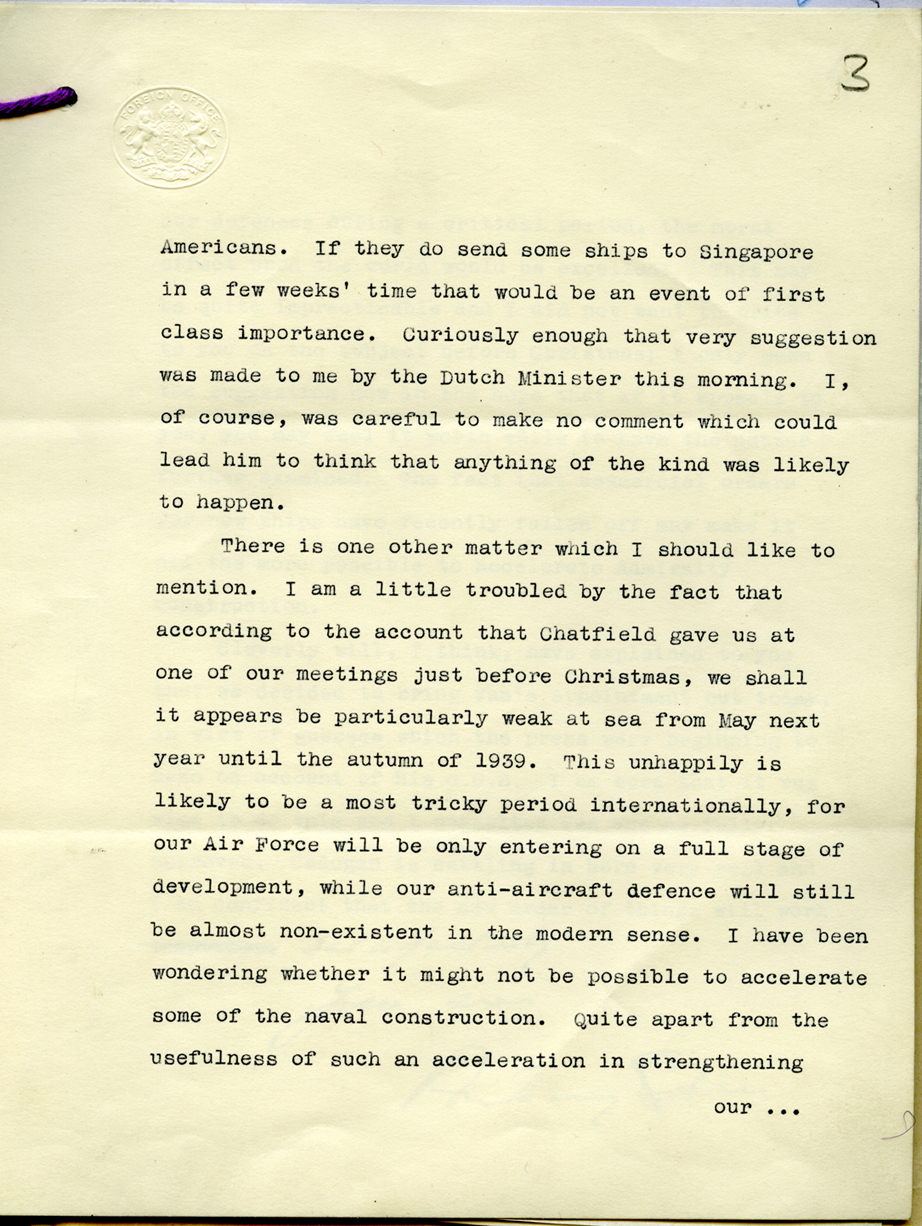Letter from Anthony Eden to Neville Chamberlain, 1937 (PREM 1/210)
Transcript
… Americans. If they do send some ships to Singapore in a few weeks’ time that would be an event of first class importance. Curiously enough that very suggestion was made to me by the Dutch Minister this morning. I, of course, was careful to make no comment which could lead him to think that anything of the kind was likely to happen.
There is one other matter which I should like to mention. I am a little troubled by the fact that according to the account that Chatfield gave us at one of our meetings just before Christmas, we shall it appears be particularly weak at sea from May next year until the autumn of 1939. This unhappily is likely to be a most tricky period internationally, for our Air Force will be only entering on a full stage of development, while our anti-aircraft defence will still be almost non-existent in the modern sense. I have been wondering whether it might not be possible to accelerate some of the naval construction. Quite apart from the usefulness of such an acceleration in strengthening …
- Can you describe the tone of the letter in the first paragraph? Is it formal or informal?
- Was it intended to be read by Chamberlain alone do you think?
- What evidence is there from the letter that Eden thought it important to build US support?
- Which aspects of Britain’s defences did Eden think needed improving?
- What phrases can you find in the letter that show that Eden seemed to be underplaying his concerns? Clue: think about use of language and tone.
- What do you think the hand written comment made by Chamberlain at the top of the letter suggests? Clue: ‘No. 11’ refers to Downing Street the offices of the Chancellor of the Exchequer.
- Why did Eden write this letter to Chamberlain?
- Can you find evidence in the letter for any of the following reasons?
- Eden was trying to put pressure on Chamberlain
- He was trying to alert Chamberlain to the fact that Britain was playing a weak hand and needed a strong ally
- He was calling for rearmament to be taken more seriously
- The letter indicates fundamental tensions over foreign policy which could to flare up later
